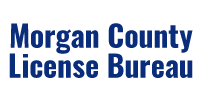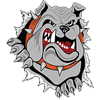911
Jessica Geier, Morgan County 911 Director
573-378-2453
jgeier@morgancountymo.gov
When should you call 9-1-1?
Nine-one-one is only to be used ONLY in emergency situations. An emergency is any situation that requires immediate assistance from the police/sheriff, the fire department or an ambulance. If you are ever in doubt of whether a situation is an emergency you should call 9-1-1. It's better to be safe and let the 9-1-1 call taker determine if you need emergency assistance.
Examples of When to Call 9-1-1:
- Heart attack or stroke
- House fire
- Domestic violence
- Burglary or theft in progress
- Car accidents
- Suspicious activities
- Anything else that seems like an emergency!
Do not call 9-1-1
- for information
- when the power is out
- to report a broken fire hydrant
- when your water pipes burst
- to get a ride for doctor's appointment
- for paying tickets
- for your pet
- as a prank
Never Prank Call 9-1-1
It's a prank call when someone calls 9-1-1 for a joke, or calls 9-1-1 and hangs up. If 9-1-1 lines or call takers are busy with prank calls, someone with a real emergency may not be able to get the help they need. In most places, it's against the law to make prank 9-1-1 calls.
Morgan County 9-1-1 would like to remind callers of three important messages:
1. Give your location - It is important for callers to provide the exact location of the emergency-especially when calling from a wireless phone. Most wireless calls are received at the 9-1-1 call centers with an approximate location; however there are many instances when the 9-1-1 call center does not receive location information. By providing the exact location (city/county, street names, etc.) it will ensure that the emergency response is dispatched to the exact location of the emergency.
2. Always stay on the line.
When callers hang up, it could mean that something has gone very wrong, so 9-1-1 call takers will attempt to call back. Therefore, a hang-up can delay appropriate emergency assistance and tie up 9-1-1 lines longer than necessary.
3. When calling 9-1-1, always answer the questions.
It is not unusual for callers in crisis to become frustrated or fail to see why operators' questions are important. By asking questions, an operator is able to discern important information that will result in the correct emergency response and personnel being dispatched to the scene.
What is 9-1-1?
Nine-one-one is the number most people in the U.S. and some in International countries call to get help in a police, fire or medical emergency. In some places, you may be able to be connected with Poison Control by calling 9-1-1, but you should check with local officials in your area to make sure. A 9-1-1 call goes over dedicated phone lines to the 9-1-1 answering point closest to the caller, and trained personnel then send the emergency help needed.
What is Enhanced 9-1-1?
Enhanced 9-1-1, or E9-1-1, is a system which routes an emergency call to the 9-1-1 center closest to the caller, AND automatically displays the caller's phone number and address. The 9-1-1 call taker will typically ask the caller to verify the information, which appears on his or her computer screen. In many areas, phone number and location information is not yet available for 9-1-1 calls made from a cellular/wireless phone.
It is common for 9-1-1 centers to have bilingual 9-1-1 call takers and dispatchers; however if there is not one available, the 9-1-1 call taker can add on an interpreter through the use of a language line service, which offers translations in more than 140 languages.
A non-English speaking caller may hear a short conversation in English and some clicking sounds as an interpreter is added to the 9-1-1 call.
For more information or to follow us on Facebook click here.




